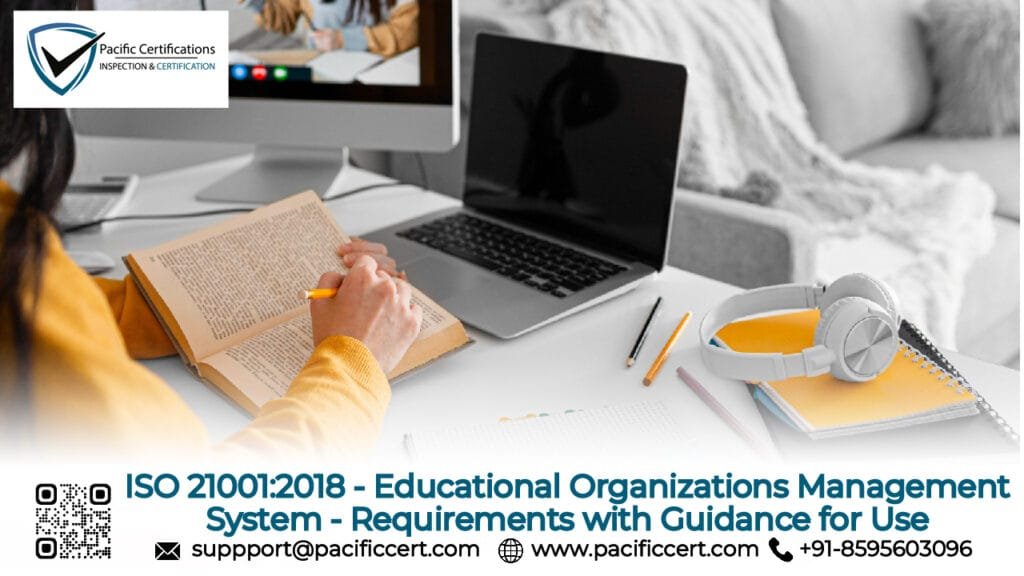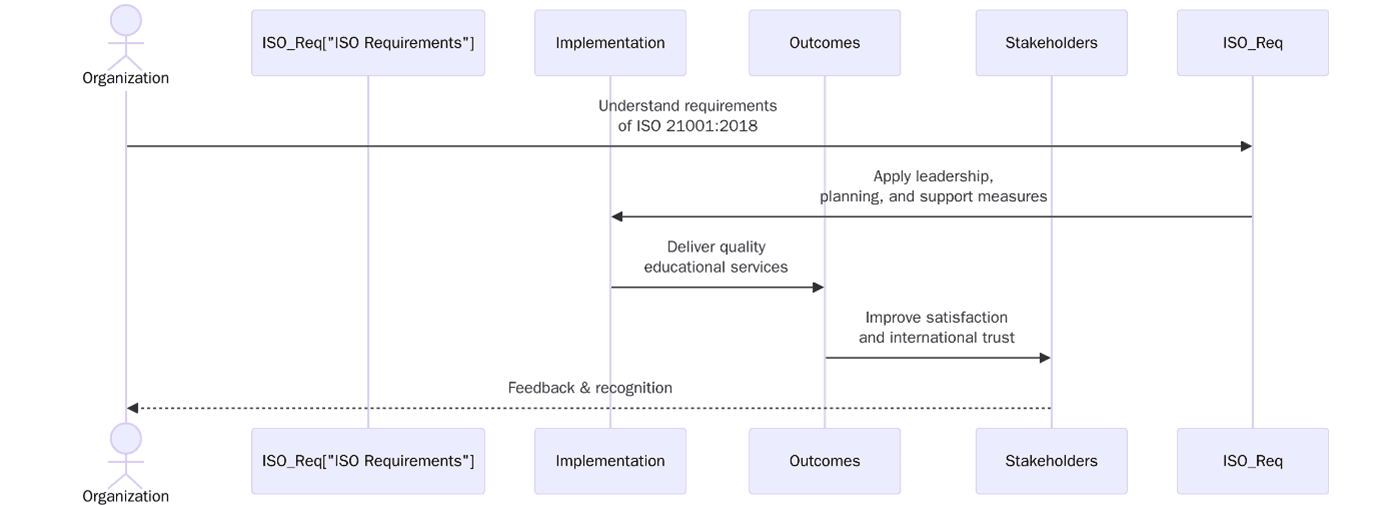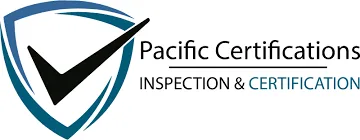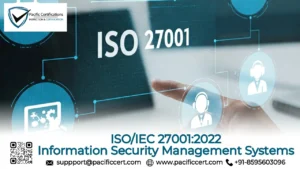What is ISO 21001:2018?


Want to align your institution with ISO 21001:2018? Contact us at support@pacificcert.com.
Scope and Applicability
ISO 21001 is applicable to:
- Schools, colleges, and universities
- Vocational and technical training institutes
- Online education platforms and e-learning companies
- Corporate training centers and professional development providers
- Special education institutions
- Government and non-government education boards and authorities
It applies to educational organizations of all types and sizes, regardless of the delivery model or funding structure. Whether your institution provides general, technical, academic, or informal education, ISO 21001 helps standardize operations and improve outcomes.
Want to assess whether ISO 21001 fits your organization? Email us at support@pacificcert.com.
Certification Process
ISO 21001:2018 is a certifiable standard, allowing educational organizations to demonstrate conformity through a third-party certification audit.
Key Steps in the Certification Process:
- Initial Gap Assessment – Compare current practices with ISO 21001 requirements
- System Design – Define scope, objectives, leadership responsibilities, and learner outcomes
- Policy and Procedure Development – Document all quality, learning, assessment, and support systems
- Training and Implementation – Train faculty, staff, and administrators on new procedures
- Internal Audit and Management Review – Validate readiness and system maturity
- Third-Party Certification Audit – Conducted by an accredited certification body such as Pacific Certifications
We support you at each stage, contact us support@pacificcert.com for certification assistance!
How to Implement in Your Educational Institution?
Implementing ISO 21001 requires integrating quality-focused thinking into the academic, administrative, and support structures of your organization. Begin by identifying your learners, understanding their needs and expectations, and aligning your educational offerings accordingly.
Develop a learner-centered management system, including:
- A well-defined educational mission and values
- Clear processes for curriculum development, delivery, and evaluation
- Methods for assessing learner progress and feedback
- Faculty development and competency assurance
- Accessible learning resources and inclusive learning environments
- Systems for continuous improvement and stakeholder involvement
Our team provides audit and certification support for ISO 21001 and other management certifications, contact us at support@pacificcert.com.
Documentation Required
ISO 21001 requires educational institutions to maintain comprehensive documentation to ensure effective learning delivery and system consistency. This includes:
- Educational Management System (EOMS) policy
- Defined roles and responsibilities
- Curriculum design and instructional strategy documentation
- Learner admission and assessment procedures
- Feedback and grievance mechanisms
- Risk assessments and corrective action plans
- Internal audit reports and continual improvement records
- Faculty qualification and development records
Eligibility Criteria
ISO 21001 can be adopted by:
- Public and private educational institutions
- NGOs delivering community-based education
- Online learning platforms and EdTech providers
- Government departments involved in skill training or literacy
- Schools and colleges seeking international recognition
- Certification and testing bodies offering competency development programs
Whether you’re a large university or a single-department training center, ISO 21001 scales to your needs. Not sure if your organization qualifies? Request a readiness consultation at support@pacificcert.com.
Certification Costs
Certification costs vary based on:
- The size and complexity of the educational organization
- Number of campuses, departments, or courses offered
- Existing documentation and system maturity
- Level of faculty and staff training needed
- Integration with other standards (e.g., ISO 9001, ISO 29993)
For a tailored cost estimate, contact us at support@pacificcert.com!
Certification Timeline
Week | Activities |
Week 1 | Initial scoping and gap analysis |
Week 2 | Policy drafting, system design, and documentation development |
Week 3 | Staff training and implementation of teaching and learning controls |
Week 4 | Internal audits, stakeholder engagement, and management review |
Week 5 | Certification audit and corrective actions (if applicable) |
Week 6 | Final audit review and issuance of ISO 21001 certification |
Need help organizing your certification journey? Contact us at support@pacificcert.com.
Clauses of ISO 21001:2018 – Explained
Clause 4: Context of the Organization
Organizations must identify internal and external factors that impact education delivery. This includes societal expectations, regulatory mandates, learner demographics, and cultural influences.
Clause 5: Leadership
Top management must demonstrate leadership and accountability, establish educational goals, and communicate the importance of quality learning outcomes throughout the institution.
Clause 6: Planning
Defines how institutions should identify risks, set measurable objectives, and integrate strategic planning with educational quality goals.
Clause 7: Support
Addresses resource allocation, faculty competence, communication systems, and control of documented information to ensure consistent teaching and support services.
Clause 8: Operation
Covers curriculum design, learning delivery, learner engagement, assessment, and evaluation of learning outcomes. It also includes processes for inclusion and special needs support.
Clause 9: Performance Evaluation
Institutions must monitor, measure, and analyze their processes. Feedback collection, internal audits, and satisfaction surveys fall under this clause.
Clause 10: Improvement
Focuses on continual improvement by analyzing feedback, audit results, complaints, and educational outcomes to enhance learner satisfaction.
Need help aligning your operations with each clause? Contact us at support@pacificcert.com.
Requirements of ISO 21001:2018
To comply with ISO 21001, educational organizations must:

- Define and communicate an education-focused policy and vision
- Ensure inclusive and equitable learning environments
- Establish learner-centric processes from admission to graduation
- Promote faculty development and competency evaluation
- Maintain records of teaching performance and learner outcomes
- Implement risk-based thinking in academic planning
- Collect and respond to feedback from learners, parents, and staff
- Integrate performance indicators into curriculum and resource management
- Conduct regular internal audits and take corrective action
- Commit to continuous improvement and stakeholder transparency
We provide assistance in translating these requirements into actionable systems. Contact support@pacificcert.com!
Benefits of ISO 21001:2018
- Centers education on learner needs, feedback, and continuous support.
- Ensures consistent learning outcomes and service quality at every level.
- Supports accessibility for learners with diverse needs and backgrounds.
- Demonstrates commitment to quality education in line with global standards.
- Provides transparency and accountability to learners, parents, regulators, and funders.
- Drives professional development and involvement in continuous quality improvement.
- Reduces administrative errors and improves resource allocation through structured systems.
- Supports Sustainable Development Goal 4: Inclusive and quality education for all.

Recently, quality in education is under global scrutiny as institutions face rapid digitization, increasing competition, and higher expectations for accountability. ISO 21001 is becoming the preferred standard for educational organizations seeking to demonstrate structured governance, learner satisfaction, and international best practices.
Several governments, particularly in Europe, Asia-Pacific, and Latin America, are recognizing or mandating ISO 21001 for accreditation, funding eligibility, and regulatory approvals.
A recent UNESCO study indicated that ISO 21001-certified institutions reported a 28% increase in learner satisfaction and a 33% improvement in staff engagement, compared to non-certified peers.
With growing attention to EdTech, hybrid learning, and skills-based education, ISO 21001 provides a unifying framework to ensure that innovation and access are matched by quality and structure.
Want to future-proof your education systems? Contact us at support@pacificcert.com!
How Pacific Certifications Can Help?
We at Pacific Certifications offer full support for ISO 21001:2018, including:
- Gap analysis and system design
- Pre-audit
- Certification audit
- Surveillance audits
- Continual improvement
- Integration with ISO 9001, ISO 29993, and ISO 45001 if required
Whether you are a K-12 school, a college, a university, or a training provider, we help you meet ISO 21001 with confidence. Start your ISO 21001 journey with us—email support@pacificcert.com.
FAQ on ISO 21001:2018
Is ISO 21001 certifiable?
Yes, educational organizations can receive third-party certification.
How is ISO 21001 different from ISO 9001?
While ISO 9001 is generic, ISO 21001 is specifically tailored for the education sector with a focus on learner satisfaction and educational outcomes.
Can ISO 21001 be used by training centers or online platforms?
Yes, it is applicable to both formal and non-formal education providers, including EdTech companies.
Is ISO 21001 mandatory?
It is not mandatory but is increasingly required by education authorities, donors, and accreditation boards globally.
Can it be integrated with other ISO standards?
Yes, it aligns with ISO 9001, ISO 29993, ISO 45001, and ISO 27001 for comprehensive quality and risk management.
Contact Us
If you need support with ISO 21001:2018 certification, contact us at support@pacificcert.com.
Read More at: Blogs by Pacific Certifications






